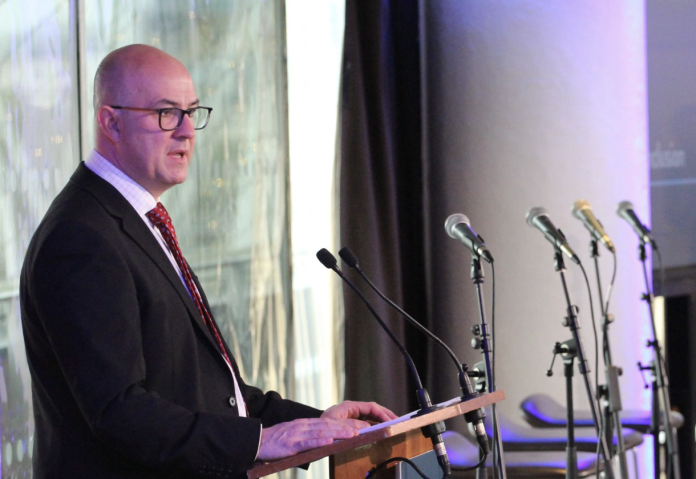Andrew Rhodes, Chief Executive of the UK Gambling Commission (UKGC), has claimed that the regulator has succeeded in its initial objective to eliminate the gaming sector’s most extreme compliance failings.
Yesterday, following a two-year interval, Rhodes addressed delegates of the GambleAware Conference, stating that the “Gambling Commission has seen a step change in the gambling industry’s commitment to meeting our standards and complying with our rules”.
He said: “In turn, we have then seen a reduction in the most extreme and unacceptable examples of failings in our casework as well.”
By undertaking an “uncompromising approach to compliance and enforcement”, Rhodes cited that the UKGC had accomplished its first-phase objective since his appointment as CEO in June 2021.
As licensed operators are aware of the consequences of failing in their regulatory duties, the Commission’s approach towards the industry has changed, focusing on moving discussions beyond basic compliance.
He told delegates: “Progress on that front means movement away from constantly needing to fight to enforce minimum standards and compliance will mean more space. Space to discuss what are actually more challenging issues. And that is where we have arrived today.”
Conference host GambleAware was branded as a forward-thinking organisation by the Commission, necessary to deliver on its White Paper objectives and support regulatory projects to fulfil the wider objective of making UK gambling the safest gambling market in the world.
Rhodes went on to emphasise how stakeholder collaboration is vital as the Commission continues to progress on the development and scope of the GamProtect scheme. The data-sharing cross-industry collaboration aims to provide the quickest intervention for those at risk of gambling harm, ensuring data protection and collaboration with other entities.
“GamProtect is already seeing those most at risk of very serious health-related harm through their gambling benefiting from a multi-operator approach across the biggest gambling companies, whilst all their personal data is protected,” he said.
“We have worked hard with the Information Commissioner’s Office (ICO) and the Betting and Gaming Council (BGC) to support this project, which is being developed with the team at GamStop, and we look forward to further updates on it in the coming months.”
The UKGC maintains a collaborative approach and open relationship with stakeholders on the most complex areas of governance including data collection and research methodologies to improve evidence on the prevalence and impacts of gambling in Great Britain.
Of significance, the regulator has gathered input from the most diverse range of stakeholders to develop its “Gambling Survey for Great Britain”—an initiative running for the past three years.
The survey aims to collect detailed and granular data on gambling behaviours, surpassing the capabilities of existing Health Surveys and Quarterly Telephone Surveys—designed to be comprehensive and provide a current reflection of gambling.
Said Rhodes: “The Gambling Survey for Great Britain has been painstakingly developed to give us the level of detail we need with modernised questions, increased frequency, and flexibility. It will also benefit from an increase in scale—with around 20,000 respondents each year when it is fully up and running. It will be the largest survey of its kind in the world.”
Entering 2024, GambleAware stakeholders were notified of an upcoming conference on the Commission’s methodological review of the Survey and data collection, which will be presented by Professor Patrick Sturgis of the London School of Economics (LSE) to address identified evidence gaps in key segments of gambling.
“Between now and then, we will continue to work on how we can make the methodology as good as it can be for full launch,” Rhodes advised. “We have commissioned Professor Patrick Sturgis, Professor of Quantitative Social Science at the London School of Economics, to undertake an independent review of our methodology, and we’ll publish his findings and recommendations early next year.
“The key thing to know is that we are on the cusp of having better data from our official statistics. We have invested significant resources—money, people, and time—and worked alongside experts in the field to develop the best consumer gambling survey that we can.”
Concluding his address, Rhodes stated that through combined efforts, UK gambling had achieved the foundations to deliver on the new objectives of the Gambling Review’s White Paper.
“The next few years do represent a golden opportunity to make gambling safer, fairer, and crime-free,” he noted. “Working together, we can, as GambleAware suggest today, turn the page to that new chapter. Thank you for your efforts and your time today.”




























